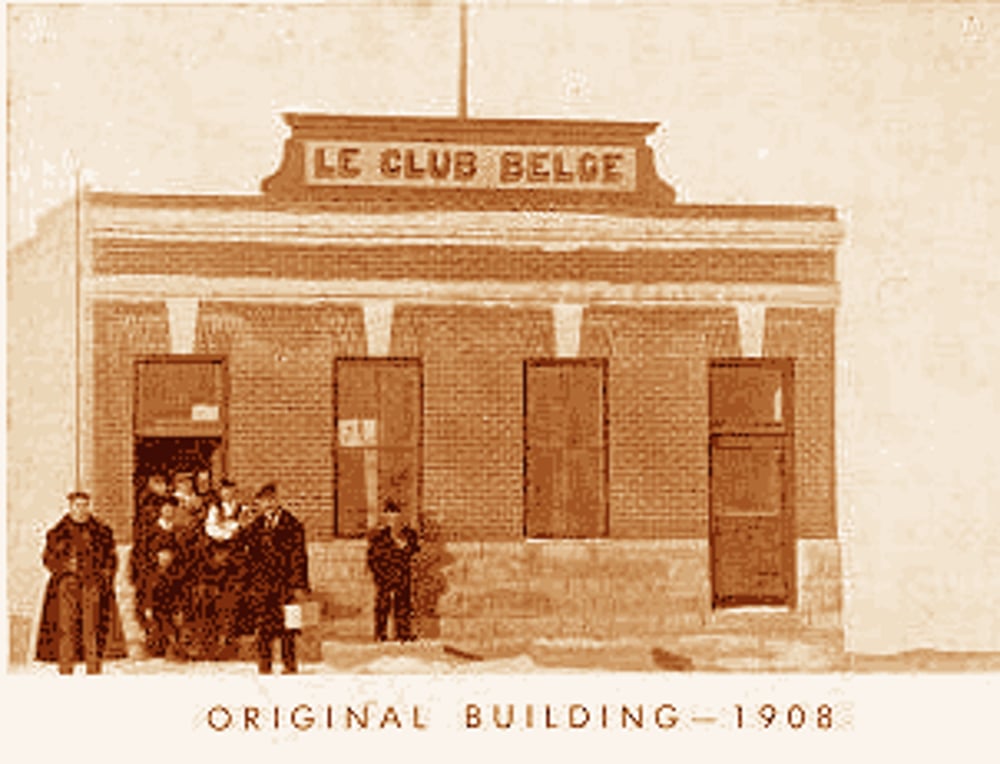History of the Belgian Club (Le Club Belge)
Since 1905, the Belgian Club has served the Belgian-Canadian community in the St. Boniface vicinity and surrounding rural areas of Manitoba.
The first small group of Belgian settlers from West Flanders arrived in Manitoba in June, 1888. They made their homes in places such as ile-des-Chenes, St. Boniface, Pine Falls, and Ninette. Over the years, Belgian immigration flourished with settlers taking up agricultural land in Swan Lake, Deloraine, St. Alphonse, St. Pierre, Bruxelles and Mariapolis, Belgians became actively involved in agriculture, particularly the dairy industry and market gardening. They also became active in the construction industry.
Le Club Belge was formally incorporated under the Manitoba Joint Stock Companies Act on Oct 4, 1905. It is one of Manitoba's earliest fraternal and cultural associations.
The existing property located at 407 Provencher Blvd. was purchased in 1907, and construction was completed in 1908. Several building additions have followed over the years to meet expanding needs.
Membership in the early years was exclusively Belgian. Each membership entitled the holder to a share in the Club, the right to vote and the right to run for office.
Wives of members had always been welcome at the Club. After the provincial government passed legislation in 1916 extending the right to vote to women, women in general were welcome at the Club provided they were escorted by a member. Women were finally eligible for a full membership in 1939.
Over the years, the Club has evolved to serve its members. Today, membership is no longer exclusive to Belgians. The Belgian Club welcomes anyone looking to join the local Belgian-Canadian community.

The Monument
About the year 1936, a suggestion was brought up by the Executive of Le Club Belge to erect a Memorial in front of the Club in memory of the Belgian soldiers who paid the supreme sacrifice in the Great War (1914-1918).
In October, 1937 under the chairmanship of then President Louis De Nobele a fundraising committee was formed to erect a monument known as Albert Place.
This monument was erected in front of the Belgian Club by sculptor Hubert Garnier. The models depicting the two Belgian soldiers were Jules DeCruyenaere (lying down) and Julien Buysse (standing) both deceased now. The stone was donated by McDonald Quarries of Victoria, BC. The unveiling took place October 1, 1938.
The monument is the only one depicting a fallen soldier.
During World War II most members rejoined the Canadian or Belgian forces. The Ladies Auxiliary provided many comfort parcels to the Comrades overseas. Following the end of World War II, the old plaque was removed and replaced with a new one, dedicating the Memorial to the fallen Belgian soldiers who had served with all Allied Forces in both wars.
In April 1995, the monument was officially declared a historical war memorial by the City of Winnipeg.
A special committee of the Belgian Veterans Association, Royal Canadian Legion Branch #107 is in charge of the upkeep, while the surroundings are under the supervision of the City of St. Boniface (now the City of Winnipeg) Parks Board.